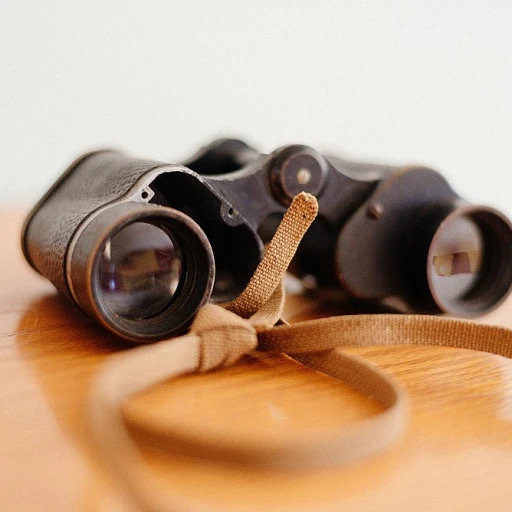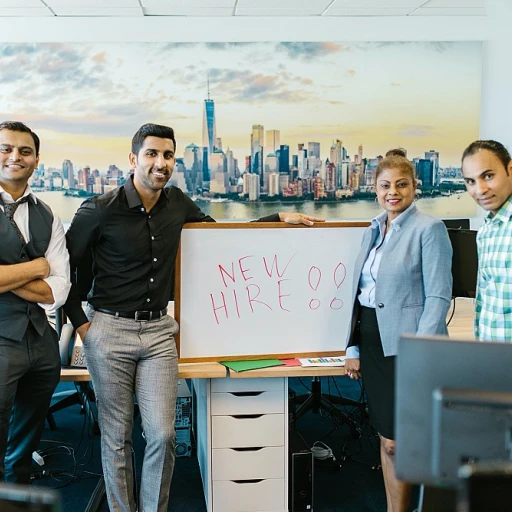
Understanding the Role and Candidate Fit
Discovering the Ideal Candidate for the Role
Understanding the role and finding the perfect candidate fit is crucial to a successful interview process. It's important to ask questions that not only assess the technical skills required for the job but also reveal how well the candidate aligns with the employer's expectations and the company’s values.
Begin the interview by exploring the candidate's understanding of the role. Ask questions such as:
- How does your experience relate to the responsibilities outlined in the job description?
- Can you describe a time when you successfully handled a similar role in the past?
These questions help evaluate whether the candidate has a clear insight into what the job entails and if their career goals align with the position. Additionally, pay attention to the candidate's enthusiasm and awareness of the company’s industry. A well-prepared candidate demonstrates not only knowledge of the role but also a genuine interest in becoming part of your team.
To delve deeper into their potential fit within your company culture, consider asking them to highlight instances where they adapted to new teams or work environments. This will give you a sense of their soft skills and flexibility, setting the stage for an effective cultural assessment later in the interview process.
The hiring manager's ability to ask these incisive interview questions is a key step in the interview process. It's about ensuring that the selected candidate not only has the right skills but is also the best fit for the company in both professional abilities and personality.
Evaluating Cultural Fit
Ensuring Alignment with Company Values and Environment
Incorporating questions that delve into a candidate's potential fit within your company culture is essential during the interview process. Evaluating cultural fit goes beyond assessing skills and qualifications, focusing instead on how well the candidate aligns with the values and working environment of the organization. This aspect is crucial for long-term satisfaction and productivity. Start with questions that reveal how candidates perceive their ideal work atmosphere. Asking "Describe a time when you worked in a team that felt truly in sync" not only highlights their team experiences but also provides insight into the work environment they thrive in. Such questions can help identify candidates who will seamlessly integrate with your company culture. Next, consider behavioral interview questions to better understand a candidate's response to common scenarios in your organization. For instance, a question like "Can you give an example of when you had to adapt to a significant change in your working environment?" allows the hiring manager to gauge the candidate's adaptability and openness to new challenges. Including questions that touch upon values and ethics further guarantees alignment. "What do you consider important in terms of company values, and how do these reflect your own?" This question helps in discerning if a potential hire's personal beliefs and ethics align with those of the company, fostering a more cohesive work environment. For a deeper dive into strategies and questions that can enhance the effectiveness of the interview process, explore resources that align interview questions with the role's requirements and company culture. This approach ensures you're not only assessing skills but also hiring candidates who will thrive in your organization's unique environment.Assessing Problem-Solving Skills
Assessing Problem-Solving Prowess in Candidates
During an interview, hiring managers aim to identify candidates who can demonstrate strong problem-solving skills. This part of the interview process is crucial, as it helps in understanding how a prospective employee might approach any challenges that arise in the role. To effectively evaluate a candidate’s problem-solving abilities, consider the following steps:- Use of Behavioral Interview Questions: A practical approach is asking job candidates to describe a time when they successfully navigated a challenging situation. Questions help in assessing their skills and strategic thinking.
- Role-Related Scenarios: Present hypothetical scenarios that are aligned with the responsibilities of the job. This provides an insight into their potential efficacy and preparedness when faced with real-world roles.
- Evaluate the Problem-Solving Approach: More than just the answer, it’s crucial to understand the thought process. How do candidates prioritize tasks, and what methods do they employ when confronting an issue?
Gauging Motivation and Career Goals
Deciphering Motivation and Career Aspirations
Understanding a candidate's motivation and career goals is pivotal in ensuring that the role and the organization align with their professional aspirations. When embarking on this probing, consider how you'll ascertain whether their ambitions dovetail with what the company and the specific job offer. Firstly, it's beneficial to ask questions that delve into their interests and passions. For instance, "What aspects of your work do you find most fulfilling?" or "Can you describe a time when you felt most engaged in a project?" These questions help reveal what truly drives candidates and whether their passions align with the company's mission and values. Another vital element is exploring how candidates view their professional journeys. Inquire about their career progression by posing questions like, "Where do you see yourself in five years?" or "What are some of your long-term goals in this industry?" Such discussions can illuminate whether a potential employee sees the opportunity as a stepping stone in their career path or merely a short-term solution. It's also advantageous to examine their perception of growth within your organization. Prompts like, "How do you believe this role will help you achieve your career goals?" can provide insights on how they envision their role evolving and their anticipation of future opportunities within the company. The response to these questions will shed light on how well a candidate perceives the potential for personal and professional development in conjunction with the company's trajectory. Equally, it informs hiring managers about the candidate's long-term alignment with the organization's culture and objectives during the interview process. Remember, the goal is to uncover their motivations and ensure they are in harmony with the company's ethos and the role they will potentially fill. A motivated employee is often the best addition to any team, bringing both their soft skills and a driven mindset to the table, contributing positively to the company culture and success. The insights gained through these qualitative questions help hiring managers make informed decisions that can enhance both team dynamics and productivity over time. This step, combined with evaluating other aspects such as the candidate's past experiences and problem-solving skills, contributes significantly to an effective hiring process.Understanding Past Experiences
Exploring Past Experiences
When it comes to understanding a candidate's past experiences, the interview process becomes a crucial tool for hiring managers. This part of the interview helps to paint a picture of how the candidate has navigated previous roles and challenges. By asking the right questions, you can gain insights into their professional journey and how it aligns with the job at hand.
Here are some questions that can help you delve into a candidate's past experiences:
- "Can you describe a time when you faced a significant challenge at work?" This question helps to assess problem-solving skills and how the candidate handles pressure.
- "What was your role in your previous team, and how did you contribute to its success?" Understanding their role in a team setting can provide insights into their collaboration and communication skills.
- "Tell me about a project you are particularly proud of." This question allows candidates to showcase their achievements and the skills they utilized to reach their goals.
- "How have your past experiences prepared you for this role?" This question helps to evaluate how well the candidate's background aligns with the current job requirements.
These questions not only help in evaluating the candidate's technical skills but also their soft skills and adaptability. By understanding their past experiences, you can better gauge their potential fit within the company culture and their ability to contribute to the team.
Remember, the goal is to create a dialogue that allows the candidate to express their experiences in a way that highlights their strengths and areas for growth. This approach will help you make informed decisions during the hiring process.













